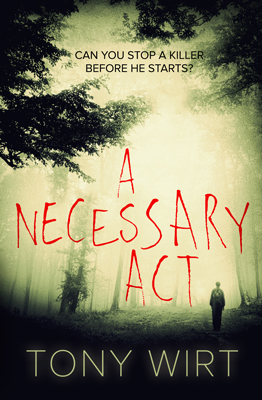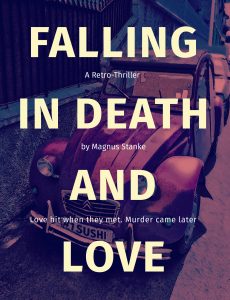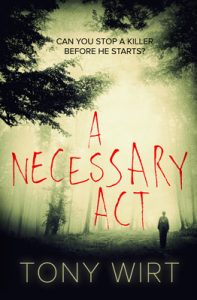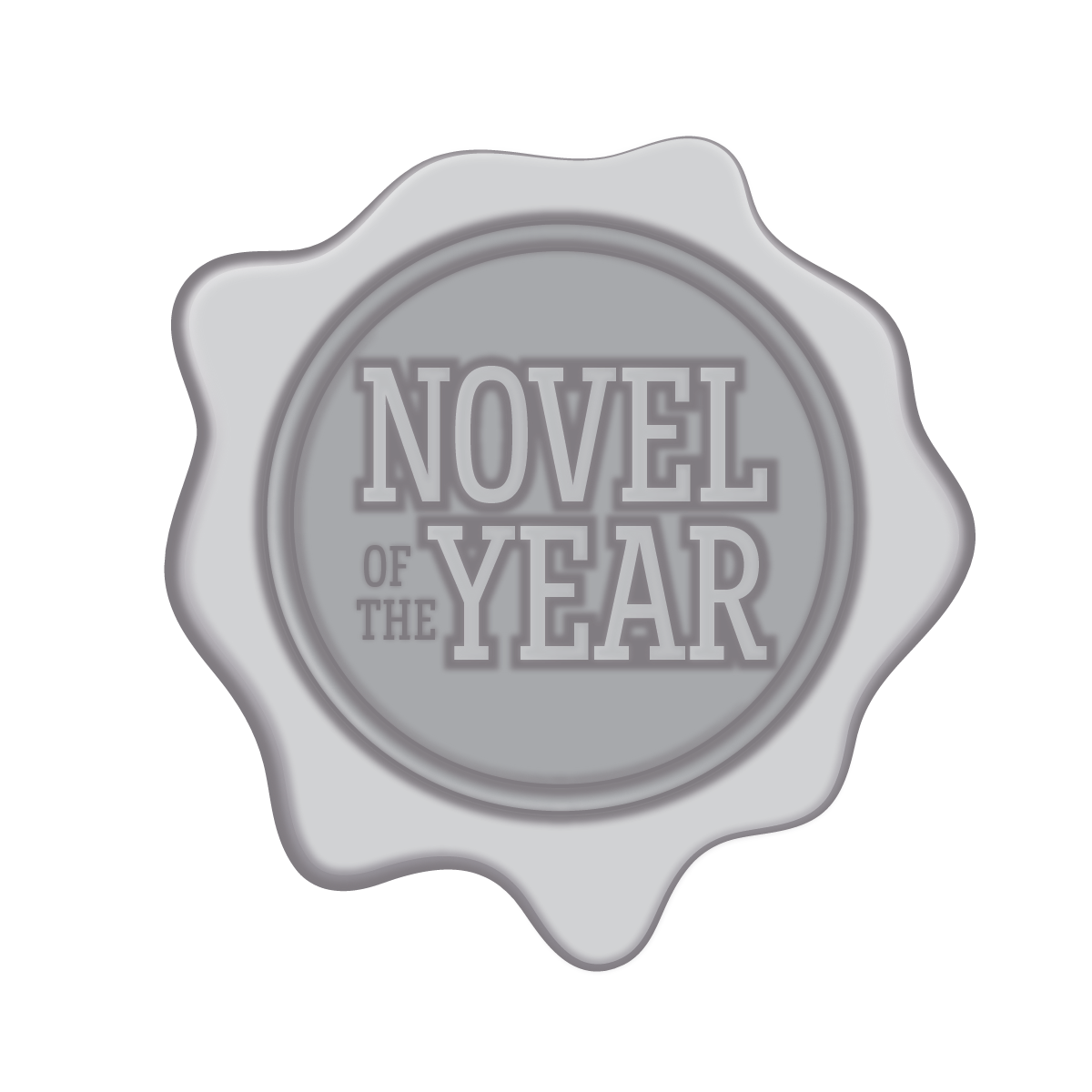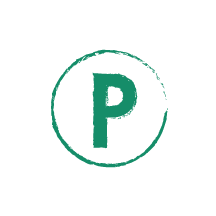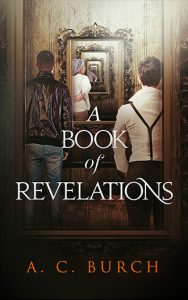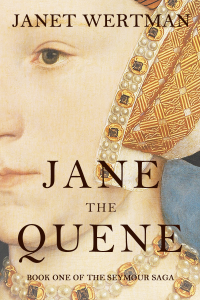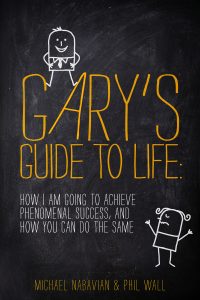The Rundown
The concept of this novel is an interesting one. If you truly believed someone was destined to become a killer, would you do something about it? Would you stop them, before they started? Part One is set in 1996, where teenagers David and Matt keep a watchful eye on the school bully Scott Alston. Having known Scott since they were small, David has more reason than most to fear what Scott is truly capable of. David thinks Scott is on course to become a serial killer. All the signs are there. Bed wetting into his teens, abusive home life, domineering parents, and the torture and killing of animals. David wants to do something to stop Scott, and the final straw comes when the two boys witness Scott in the middle of what could turn out to be his first kill. With this tragedy prevented, David is even more determined to stop Scott Alston. Feeling abandoned by Matt, David goes it alone and the decision he makes one night lead to drastic and unforeseen consequences. Lives are changed forever and nothing will ever be the same. Fast forward to 2015, and Matt is returning to his home town to take up a job on the local paper. He bumps into his old friend David, who is haunted by the decision he made as a teen. Matt does not expect much excitement from his small town post, until a girls body is found burned in a field close to her home. Another girl a week later and it looks like the small town of Lake Mills has a serial killer in the midst. David, anguished by the mistakes of the past, is determined to stop Scott once and for all, and with Matt now convinced and on side, the novel crashes on a breath taking pace towards the climactic and unexpected ending. I literally could not put this book down. As far as thrillers and crime novels go, it ticked every box for me, whilst also managing to be unique in its concept and style. Great characters, genuine belly aching tension, and an ending that both surprises and satisfies…and yet is left, wide, wide open…I truly hope there is more to come.
The Recommendation
A page turning psychological thriller that had me on the edge of my seat. An interesting and debatable subject matter; would you kill a killer before they killed? Something similar to the moral question about whether or not you would go back in time and kill Hitler as a baby. Also a brilliant and convincing portrayal of small town life.
The Rating

Top Pick! 5 Stars (out of five): Freaking amazing. Any agent or publishing house that passed this one up made a big mistake. It was selected by our reviewer as a personal favorite. This is also a nomination for our Novel of the Year award.
The Pros & Cons
Pros: Characterization, Page Turner, Plot, Prose, Surprise EndingThe Links
The Reviewer
Chantelle Atkins
Visit Chantelle Atkins‘s website.Tony Wirt's debut novel, A Necessary Act, is a gripping psychological thriller about the moral dilemma a sixteen year old boy faces when he realizes the school bully shows every early sign of becoming a serial killer. Should he do something to stop him before it's too late? Here, Tony tells us where the idea for A Necessary Act came from, and whether or not there is likely to be a sequel...
Can I ask you about the idea behind A Necessary Act; where or what did it evolve from?
The entire story came from the question that's on the cover - "Can you stop a killer before he starts?" Ever since I saw Silence of the Lambs as a kid, the psychology and profiling of serial killers - especially the idea that most of these monsters share the same traits from an early age - fascinated me. If we see these characteristics early, what can be done? Anything? And if so, should something be done?
I started exploring that in my writing, and ended up with a 20,000 word story I had no real plans for. It was way too long to be a short story and not near long enough to be a novel, so I figured it was destined for the drawer. But something about it kept me thinking, and I never put it away. Eventually I realized it could make a great second act. If I told what led up to it and what happened as a result of it, that could be an interesting novel.
This is your first novel. Are there others in the pipeline and if so, are they going to be in the same genre?
I have a head full of ideas and a few different chapter 1s written down, but I don't have a second book officially teed up yet. Good writing time is hard to come by during the summer, so I don't plan on officially starting my next book until the fall. When it comes, however, expect it to be another thriller.
Tell us about the writing process behind the novel. Did you plot the novel first, or did the events reveal themselves to you as you wrote it?
I can’t write in my house, because every time I get stuck for more than four seconds, laundry or some other chore starts calling my name. And no matter how much I insist that I can “think it over” while doing something else, it never comes true. If I get up from the keyboard, I may as well pack it in for the day. So I work at the local coffee shop. That way, even if I run into a roadblock, I have to sit there and work through it. More often than not that extra few minutes gets me through. Writing in public brings its own challenges, but it is nothing a pair of noise-cancelling headphones and some LCD Soundsystem can’t cure.
As for plotting, I started with a very rough idea of where I thought things would go, but whenever I found myself trying to force certain actions on my characters, they always rebelled. Eventually I had to let them take the lead and they got me through it. The final ending was a surprise even to me, and didn’t reveal itself until I was about 75% of my way through the first draft. It was a real “eureka” moment.
The novel had a surprise ending, but was also left wide open in the final chapter...do you have plans for a sequel?
As I was writing this book I never thought about a sequel, but as people read it I keep getting asked if there will be a Book #2. My goal was to tell the story, to answer all the questions I posed, and I think I did that. Of course that doesn’t mean the reader is going to know everything. I hope my book sticks with readers for a bit, gives them something to chew on for a few days after they have read the final chapter.
So I have no plans for a sequel. That said, if a truly interesting idea were to pop up while I’m doing laundry someday…
How did you get into the mindset of a character like Scott? Did you have to research the subject of serial killers, and if so, how did your research influence your writing?
I did a lot of research on the internet about serial killers, which led to some freaky webpages. Every now and then I would have to give my wife a warning. “OK, so I was doing research today just in case you come across something in the browser history about dumping dead bodies.”
Scott was definitely my favorite character to write. I’ve always loved great bad guys… Hannibal Lechter, Anton Chigurh, Darth Vader, so getting to play with a character like Scott was a blast. Basically, I just kept thinking ‘what would creep me out’, then have Scott do that.
When did you first know you wanted to be a writer?
I’ve been writing since I was a kid. My parents recently dug a few boxes of my childhood stuff from their basement, and one was full of stories I had written in elementary school. One particular gem was entitled “Scared Stiff” about a group of kids who were scared to the point of petrification and could only be cured by a potion made with the hair of a panda. Gripping, isn’t it? I also found a series I wrote called “Murder on Maple Street”, which for legal purposes was in no way a cross between the Nightmare on Elm Street and Friday the 13th movies written by a kid who was allowed to watch neither.
What genres do you usually read in? And can you tell us what books and authors have influenced your own writing, if any?
I go in streaks, but pretty much read anything. I’m a big music guy, so I just started Carrie Brownstein’s memoir Hunger Makes Me a Modern Girl. I listened to a fair amount of Sleater-Kinney while writing A Necessary Act.
When I was in 7th grade I read Misery by Stephen King, and have been a fan of his ever since. His storytelling abilities have always been an inspiration. More recently, I read Caroline Kepnes’ You and was so impressed with her character Joe that I almost felt like quitting because there was no way I’d ever write a bad guy that good. Her follow-up Hidden Bodies was also amazing, and is the best example I’ve seen of a writer growing and adapting for Book #2. She could have tried to just write You again, and it probably would have been fine but nothing special, but she tweaked a few things that made You great but would have been stale in a sequel. The end result was a Empire Strikes Back-level follow-up.
What made you decide to take the indie route and how have you found it so far?
I tried the agent query process for almost a year and got about as good a response as I could get without getting signed. I’d repeatedly have agents ask to read my manuscript, then give me the “I like it, but without a ‘name’…” speech. Eventually I realized that self-pubbing was not only an option, but probably a better one. It’s hard work, but you get to be in control. My book’s been out for just over a month now and it’s been a great process.
What advice would you give to anyone writing their first novel? Do's and don'ts? What have you learnt during the process?
The first draft is all about effort. You have to treat it like a job. Block aside whatever writing time you can afford and protect it above all else. It doesn’t have to be a lot – when I first started it was three hours every Wednesday. But stick to it and get that first draft done. It doesn’t have to be good (and, no offense, it won’t be) but it will be the framework for your story. You can make it pretty and clever and exciting during the re-writes. Think of the first draft as building a house - you’re just getting a frame up. Your re-writes are decorating (and often remodeling) it.
Once it’s done, the two most important things are editing and cover design. If you don’t have professional help in each, you’re book will read/look amateurish. I originally thought I could get by with a few good beta readers and my own keen eye. I eventually realized I needed a professional set of eyes on my manuscript and it saved my book. I’d been trying to edit with bandages when I my manuscript needed surgery. After a twirl with Eschler Editing, I went from instant rejections to agents asking to read my book immediately. My beta readers noticed the difference too. All I needed was someone to stand up to me and tell me to cut 10k words that I’d assumed were essential.
Tell us three interesting things about yourself.
The town A Necessary Act takes place in, Lake Mills, IA, is a real town. I grew up there. My early drafts had a made-up name, but it was obvious I was drawing from all my childhood memories anyway, so I may as well just go with it. Most of the locations are real, except when I needed something else for the story. Then I just made it up. I’m trying to convince my dad to buy a bus and lead a Seinfeld-esque “Reality Tour” of all the locations used in the book.
I’m taking the time between novels to write a middle grade book for my two daughters. My grandfather had a cat who got out of the house and was missing for almost a month. We all assumed she was gone for good, until one day she was found. I’m writing about all the adventures she had while gone, and how she got back home. It’s WAY out of my writing wheelhouse, but that’s made it a perfect literary palate cleanser for when I start my next “real” book. It’s been a lot of fun, and if it ends up being as fun to read as it has been to write, I may end up publishing it. I’d use a different name, though, so as not to confuse any of my other readers. I wouldn’t want readers who liked my kitty book to be accidentally introduced to Scott Alston.
I was a sportswriter for the Daily Iowan during my four years at the University of Iowa. That newsroom has also produced two of my favorite authors in recent years - Chelsea Cain (Gretchen Lowell Series, Kick Lannigan Series, Marvel’s Mockingbird) and Justin Cronin (The Passage Trilogy).
Visit the author’s website
Read A Necessary Act

